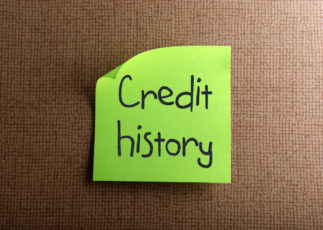A credit score is an important part of your credit history and overall is essential for many purchases, loans and other important financial decisions or transactions. It can help determine a lot of things, such as interest rates that you’ll receive.
That’s why it is important to fully understand and know what credit score you currently have and where you’d like it to be. Wondering how to obtain a credit report and what your credit score really is? Check out these tips and advice:
1. Your credit score is based on five different and important categories. These include different types of credit (mix it up), new accounts and credit requests, records of paying bills on time or not, total indebtedness, and the time frame of your credit history. The better you are in each category, the better your total credit score will be.
2. There are different ranges in credit scores, and these ranges will help you know if your score is excellent, good, fair or bad. The best score you can get is around 760-850. The lowest you can get is 300-549. Lenders use your FICO credit score to determine if they’re willing to give you credit. The median and average score is typically 699-720, and the “risks” are usually 600 and below.
3. There are many different ways of improving your score. You can do this by improving your payment history, meaning paying your bills on time and paying off any missing payments. Try to keep your balances low, pay off your debts and do not close unused credit cards. Also, check your credit report often, and manage your credit card with responsibility. You can get your free annual credit report from all three major credit bureaus by visiting www.annualcreditreport.com.
Get Started With a Free Debt Analysis
We make it easy on mobile or desktop. FREE with no obligations.
4. There are a few other things that can possibly hurt your credit score. This includes any unpaid medical bills or parking tickets that you may have received. Heavy use of credit can also lower your score, and if you sign up for a department store card in order to get a discount your score will possibly drop as well.
5. A good mix of different types of credit (revolving accounts like credit cards as well as installment accounts, like mortgages, student loans, or car loans). Keep your credit utilization on revolving accounts low (no more than 30% of your total credit limit, but ideally under 10%).
6. The older the accounts, the better! If you have an old credit card you hate, don’t cancel it. Keep it open and use it occasionally since that account may be helpful for your score given its age. However, if the card has an annual fee and you’re not using it, then it usually makes sense to cancel it.
Having a good credit score may be hard to understand for some people. But if you’re trying to qualify for a loan, get a job and save money in the long run, a good credit score is essential. A bad score can prevent you from purchasing things like a home or a vehicle, and overall makes life much more stressful.
Understanding your credit score is as simple as knowing the different ranges, what is good and what is bad, and where your score falls on the chart. Be sure to check your credit report and score often and work on improving it each chance you get.
Advantage CCS now offers a Credit Report Review service where a certified credit counselor will pull your credit report, review it with you and let you know what everything means, and give you tips and advice on how to possibly improve your credit score or fix any credit reporting errors. Give us a call at 1-866-699-2227 to schedule your session today!
